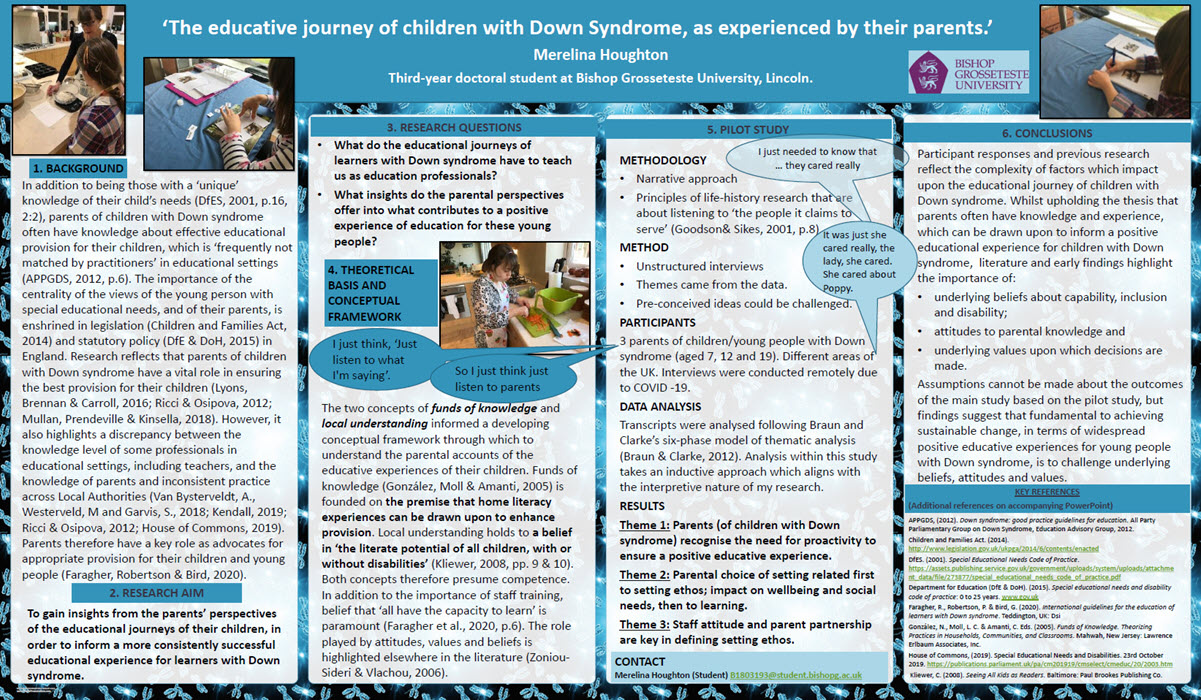The educative journey of children with Down Syndrome as experienced by their parents
The educative journey of children with Down Syndrome as experienced by their parents
- Third-year doctoral student and member of the academic staff at Bishop Grosseteste University, Lincoln. This research is being conducted in my capacity as a student on the Doctorate in Education course.
Contact: merelina.houghton@bishopg.ac.uk; B1803193@student.bishopg.ac.uk
Abstract
The paper reports on a pilot study conducted to inform research on the question: What do the educational journeys of learners with Down syndrome have to teach us as education professionals? My research seeks parental perspectives on the educative journey of children with Down syndrome, thus raising the further question: What insights do the parental perspectives offer into what contributes to a positive experience of education for these young people?
Despite widespread acknowledgement of the essential place of parental voice, practice is inconsistent. Lack of knowledge about Down syndrome and appropriate educational strategies can lead to misconceptions and low expectations, resulting in inappropriate provision. The research aim is to gain insights from the parents' perspectives of the educational journeys of their children, in order to inform a more consistently successful educational experience for learners with Down syndrome. This pilot study drew on funds of knowledge theory and the concept of local understanding to inform an evolving framework for understanding the educational journeys of children with Down syndrome. This framework recognises the fundamental role of beliefs about and attitudes to disability and inclusion.
The pilot study trialled a narrative approach, based on principles of life-history research. Themes arising from unstructured interviews with three parents of young people with Down syndrome, identify staff attitude and parent proactivity as key factors impacting the educational experience of these children. Previous research into the attitudes and beliefs of staff regarding inclusion and disability suggests that social and educational context may influence beliefs and attitudes which in turn perpetuate systems. This would indicate that inclusive legislation, policy and guidance are not alone sufficient. In order to break what can be a self-perpetuating cycle and achieve sustainable and positive change in the educational provision for children with Down syndrome, we need to challenge underlying beliefs and values which drive some current practice.
Poster:
Download the PDF here


